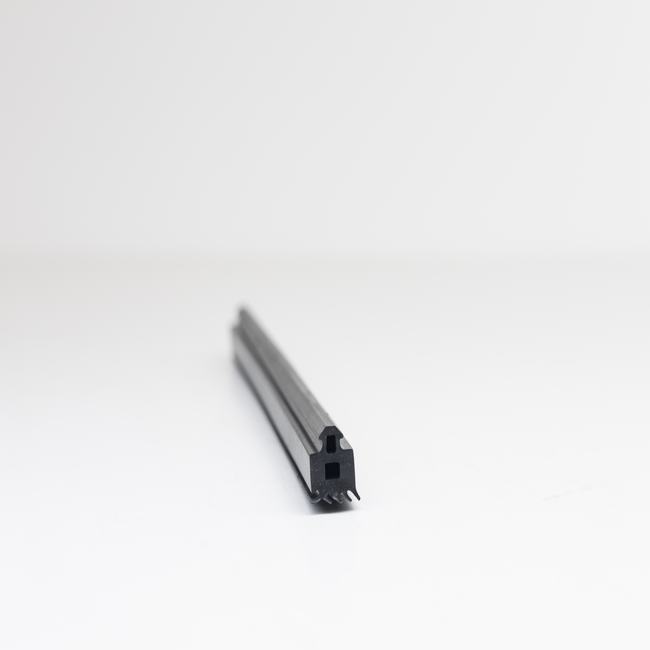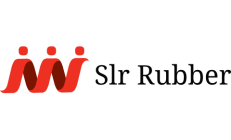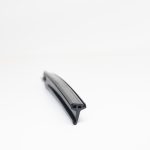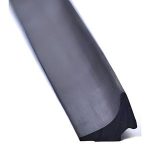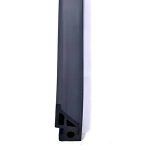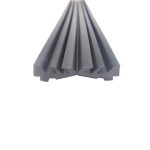Industrial seals are critical components used in various industrial applications to prevent the leakage or ingress of fluids, gases, and contaminants, as well as to maintain the integrity, safety, and efficiency of equipment, machinery, and systems. These seals are designed to withstand harsh environmental conditions, high pressures, extreme temperatures, and other challenging factors commonly encountered in industrial settings. Here is an extensive description of industrial seals:
Design and Structure:
- Materials: Industrial seals are constructed from a wide range of materials, depending on the specific application. Common materials include elastomers (e.g., rubber, silicone, and Viton), plastics (e.g., PTFE), metals (e.g., stainless steel), and composites (e.g., graphite and fiberglass).
- Seal Types: There are various types of industrial seals designed to meet specific requirements, including O-rings, gaskets, packing seals, lip seals, mechanical seals, and more. Each type serves a distinct sealing purpose.
- Profile and Geometry: The shape and profile of industrial seals can vary, with common designs such as flat, V-shaped, U-shaped, and custom-engineered geometries to fit the sealing application.
Applications:
Industrial seals find use in a wide range of industrial sectors, including:
- Oil and Gas: In the oil and gas industry, seals are used in wellhead equipment, pipelines, and valves to prevent leakage of potentially hazardous substances.
- Aerospace: Aerospace applications require seals in critical areas, such as aircraft engines, landing gear, and hydraulic systems, where precision and reliability are paramount.
- Automotive: Seals are essential in automotive engines, transmissions, and braking systems to prevent leaks and maintain efficient performance.
- Manufacturing: In manufacturing processes, industrial seals are used in pumps, mixers, and other machinery to maintain the integrity of chemical and fluid systems.
- Pharmaceutical and Food Industries: These industries use seals in equipment to ensure the cleanliness and sterility of processes, preventing contamination.
Benefits:
- Leak Prevention: The primary function of industrial seals is to prevent the escape of fluids or gases from a system, ensuring safety, reducing environmental impact, and preventing contamination.
- Enhanced Efficiency: Properly functioning seals reduce energy waste by preventing leakage, maintaining system pressure, and optimizing performance.
- Extended Equipment Life: Seals protect components from wear, corrosion, and damage, extending the lifespan of machinery and equipment.
- Safety and Compliance: In many industries, the use of appropriate seals is essential to meet safety and regulatory standards.
Challenges and Considerations:
- Material Compatibility: Choosing the right seal material is crucial, as it must be compatible with the fluids and operating conditions to avoid degradation.
- Installation and Maintenance: Proper installation and regular maintenance are necessary to ensure that seals continue to function effectively over time.
- Temperature and Pressure: Seals must be selected and designed to withstand the specific temperature and pressure conditions of the application.
- Fluid Compatibility: Compatibility with the type of fluid being sealed is vital to prevent chemical reactions that could compromise the seal’s integrity.
Innovations and Advancements:
- The industrial seal industry has seen advancements in materials, such as high-performance polymers and elastomers that offer superior chemical resistance and durability.
- Custom-engineered seals are becoming more prevalent, designed for specific applications and challenging environments.
- Smart seals equipped with sensors and monitoring systems are emerging, allowing real-time tracking of seal performance and condition.
In summary, industrial seals are indispensable components in various industrial applications, playing a critical role in preventing leaks, maintaining efficiency, and ensuring safety and compliance. The choice of seal type, material, and design is essential for each specific application, and ongoing maintenance is necessary to ensure optimal performance and the longevity of industrial equipment and systems. Advances in materials and technologies continue to drive improvements in industrial seal design and functionality, making them an integral part of modern industrial processes.
